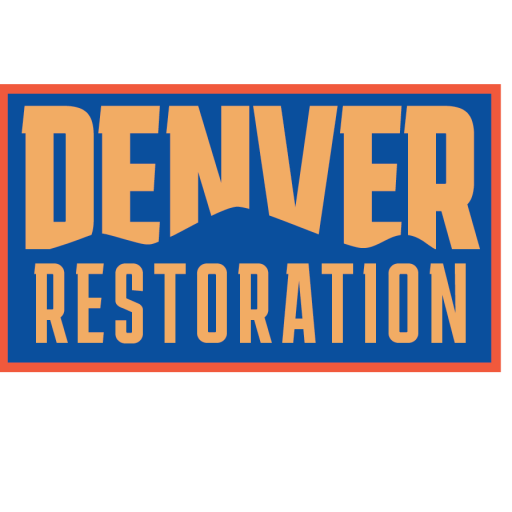Understanding the Threat of Mold Spores in a Commercial Environment
Mold is an unwelcome sight in any environment, but it poses significant issues in a commercial context. The presence of mold can lead to health problems for employees and can negatively impact the reputation of a business. Moreover, mold growth might also indicate underlying issues such as water damage that need immediate addressing. In extreme cases, mold spores can even cause structural damage, making commercial mold removal a top priority for businesses.
Why Prioritizing Commercial Mold Removal is Essential
The necessity of maintaining a mold-free workplace cannot be stressed enough. While it’s natural for mold spores to be present in the air, problems start when these spores find the right conditions to grow and proliferate. High humidity levels, poor ventilation, and building leaks can provide the ideal breeding ground for molds. Once allowed to grow, removing mold becomes a complex task requiring professional intervention.
As emphasized by the Virginia Department of Health, some mold species can cause significant health effects such as allergic reactions, asthma, and other respiratory issues. Businesses should prioritize the welfare of their employees by ensuring the work environment is free from health hazards like mold. Regular checks and immediate mold remediation can help maintain a mold-free workplace.
Effective Steps Towards Achieving Cleanliness in Your Commercial Space
Achieving cleanliness in your commercial space is a multi-step process that begins even before mold becomes visible. The first step is preventative maintenance. Regular inspection of your commercial space can help detect potential issues that could lead to mold development, such as water leaks.
Effective water damage restoration techniques can help prevent mold growth. However, if mold has already appeared, a professional cleanup process should be initiated. At Denver Restoration, we offer thorough cleanup procedures aimed at eliminating all mold spores and preventing future growth.
The Role of Insurance and Legal Compliance in Mold Remediation
Understanding your responsibilities as a property owner is key to avoiding potential legal repercussions associated with mold infestations. By law, commercial property owners are responsible for maintaining safe, healthy premises. Failing to address mold problems can open up potential legal liabilities.
Additionally, some insurance policies cover mold remediation. It’s crucial for property owners to understand the details of their insurance policies and what types of damage are included. A thorough damage assessment can help identify areas where your insurance can cover the costs of mold removal and restoration.
Ensuring Environmental and Health Safety During Mold Removal
During the commercial mold removal process, it’s critical to ensure environmental and health safety. Professional restoration teams are trained in dealing with mold without spreading it throughout the building or causing unnecessary exposure to harmful spores.
The Occupational Safety and Health Administration (OSHA) provides thorough guidelines on handling mold in commercial properties. Following these regulations ensures that mold removal processes don’t pose additional threats to the health of workers or the environment.
In conclusion, achieving a mold-free environment in a commercial space is not just about aesthetics or preventing property damage. It is also about maintaining the health and safety of the people who occupy these spaces and ensuring the continued operation and reputation of the business. Meticulous preventative maintenance, timely commercial mold removal, and adherence to environmental, health, and safety guidelines all play crucial roles in achieving this objective.
The Consequence of Ignoring Mold Spores in Your Commercial Space
Every decision has an outcome, even those of inaction. Mold, for instance, if left unchecked in your commercial environment, can quickly escalate into a full-fledged crisis. This crisis might take different forms – from being a health concern for employees, customers, and other visitors, to regulatory infringements which can potentially lead to legal liabilities. The impact on your business’s reputation can certainly be significant.
Ignoring a mold situation is far from ideal. It’s not just about appeasing authorities or insurance companies. The health implications alone make it necessary to take action and protect those who frequent these commercial spaces. As explained by the Florida Health Department, unchecked mold growth can lead to several health effects including but not limited to nasal stuffiness, throat irritation, coughing, and eye or skin irritation.
Mitigating the Risks with Professional Mold Remediation
Professional mold remediation involves a series of steps designed to control and eliminate mold growth. It’s a specialized task that requires a firm understanding of mold, its growth requirements, and how to safely eliminate it without causing undue exposure to the harmful spores.
The process of mold remediation involves inspecting the premises thoroughly, identifying the source of moisture that is encouraging mold growth, and then addressing that source. This could involve repairing leaks, increasing ventilation, or reducing humidity levels. Once this is done, remediation professionals can set about removing the mold using specialized equipment and techniques.
At Denver Restoration, we offer not just mold remediation but also guidance on taking preventative measures to avoid reoccurrence of molds.
Role of Communication in Crisis Management during Mold Remediation
Managing a mold situation requires careful navigation. While being transparent with employees and customers about the situation is vital, it’s also equally important to reassure them that appropriate measures are being taken to resolve the situation.
Good communication during a mold crisis involves providing regular updates about the remediation process, addressing health concerns, and justifying any possible disruptions to operations. This is especially true for businesses open to the public, where maintaining transparency can help manage the perception of your business.
Importance of Long-term Mold Prevention Measures
While it’s crucial to address existing mold problems in a commercial space, long-term prevention cannot be overlooked. This can be achieved through regular property maintenance and inspections. By staying on top of potential issues like leaks and venting problems, you can often prevent mold before it becomes a problem.
It’s also important to factor in local weather conditions, especially in areas with high humidity or rainfall. These elements can significantly increase the risk of mold, making preventative measures even more critical.
Crucial Role of Water Damage Restoration in Preventing Mold
Mold is a common aftermath of water damage, but this doesn’t have to be the case. By quickly addressing water damage, you can prevent mold before it even has a chance to grow. Proactive water damage restoration involves removing all excess water, drying out the area, and repairing any damage that occurred.
Water damage restoration is not all about preventing mold growth. It also helps maintain the structural integrity of the building and prevent further damages. At Denver Restoration, we use state-of-the-art equipment and techniques to restore your property to its pre-damage state, thus preventing potential mold development.
Ensuring Health and Safety After Mold Removal
Once the mold has been removed, it is important to ensure the environment remains safe and health risks are mitigated. Following guidelines provided by the Occupational Safety and Health Administration (OSHA) and other such authorities can help achieve this.
Post-removal, areas should be thoroughly cleaned and disinfected to remove any residual spores or other potential contaminants. Air quality should also be tested to ensure there are no lingering spores that could lead to future growth.
In essence, maintaining a mold-free environment in a commercial space goes beyond the obvious potential damage to the structure or aesthetics of a building. It has far-reaching impacts on health, safety, and the very operation of your business. The importance of immediate action, professional intervention, and preventative maintenance in dealing with mold cannot be overstated.

